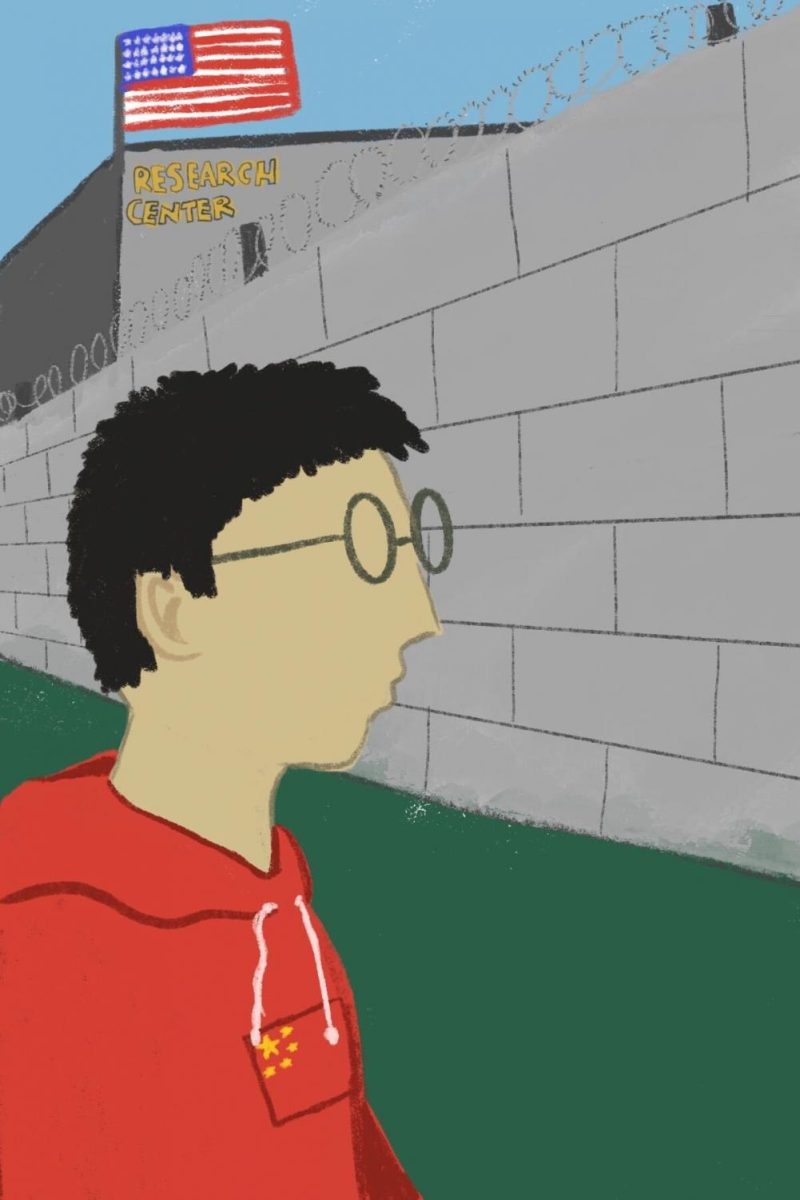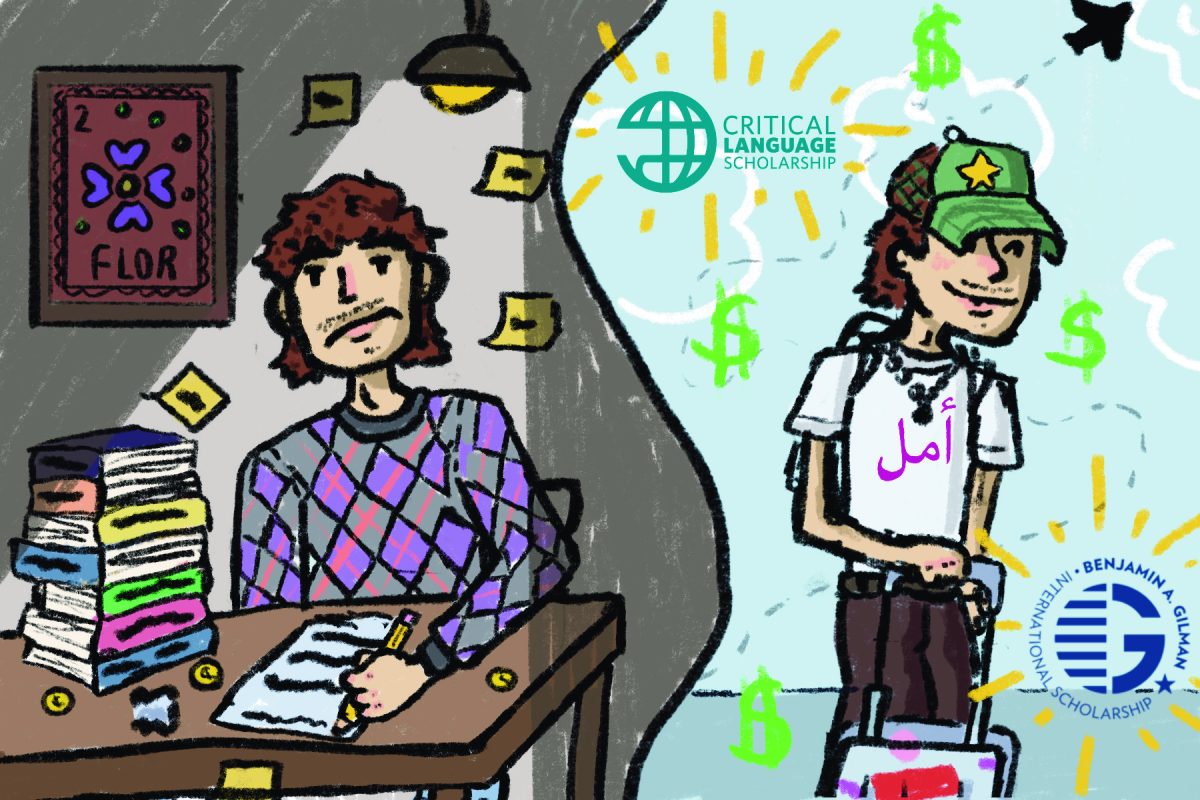One of Sen. Tom Cotton’s (R-Arkansas) most egregious actions has been his sponsorship of the SECURE CAMPUS Act. The SECURE CAMPUS Act, which is also sponsored by Sen. Marsha Blackburn (R-Tennessee) and Congressman David Kustoff (R-Tennessee), is designed to prevent Chinese citizens from pursuing graduate and post-graduate studies in STEM by barring them from receiving student or research visas.
Although this is meant to “protect” universities from Chinese espionage, all it will do is block Chinese students from enriching their scientific knowledge by doing research at U.S. schools, like Texas State, and block U.S. researchers from the opportunity to collaborate with their Chinese peers.
This act is not a new idea in Republican campaigns—in 2018, Politico reported that President Donald Trump claimed: “Almost every student that comes over to this country is a spy.” All this suspicion of Chinese scholars appears to stem from concerns over the Thousand Talents Program.
The Thousand Talents Program is a Chinese program established in 2008 to bring both Chinese and non-Chinese scholars into Chinese academia—an effort to reverse the “brain drain” China experiences when experts leave for positions at foreign institutions.
However, the Thousand Talents Program came under fire from the U.S. government when a few faculty involved were indicted for various crimes, mainly financial. Chinese and non-Chinese scholars alike are accused by the U.S. Department of Justice of committing espionage for the Chinese government, whether there is real evidence of information sharing or not.
Under the Trump Administration, academics noticed a sea of change in how the U.S. government viewed scholars’ ties with Chinese institutions around 2018. Yes, these discrepancies in financial reporting are unethical but are not always illegal.
The straw that broke Cotton’s back on this subject seems to be the case of the University of Arkansas-Fayetteville’s electrical engineering professor, Simon Saw-Teong Ang. Ang was charged with wire fraud after failing to disclose his ties to Chinese programs like the Thousand Talents Program in applications for federally-funded research grants.
While it is not clear whether Ang did this because he was giving proprietary information to the Chinese government, it is clear that the growing Sinophobia plaguing Americans concerned him and made him fear losing his position. This concern is echoed by other scientists, both in China and elsewhere.
The SECURE CAMPUS Act is not a new policy, just a stricter one. In 2018, the Department of State already cut the duration of research visas from five years to one year for Chinese students attempting to study aviation or robotics. In the interest of “national security,” these new guidelines also decreased these students’ access to visits home and international conferences, where the Trump administration argued that espionage could be taking place.
However, all of these rules and legislation assume that all Chinese students, and even faculty, are engaged in espionage. This is textbook racial profiling.
In the 2018-2019 academic year, 133,396 Chinese graduate students attended U.S. institutions, 34 of those attended Texas State. Several Chinese-born science professionals were arrested on suspicion of espionage, but several have had charges against them dropped. They came under suspicion for merely communicating with a former college classmate, as in the case of hydrologist Sherry Chen, or sharing schematics of their work, as in the case of Dr. Xi Xiaoxing.
For those wrongly accused of espionage, their careers are permanently stained, they lose years of work and are under the stress of undergoing investigation for things they did not do.
However, senators Cotton and Blackburn need not wait for Congressional approval for their plans to ban Chinese STEM grad students from entry—President Trump is ensuring the road to research becomes harder for Chinese students through executive action.
On May 29, Trump issued a proclamation prohibiting Chinese graduate students from applying for F-1 (to enroll in any U.S. school) or J-1 (to enroll in any U.S. college or university) visas if they had ever studied at, been employed by, conducted research at, or been funded by any institution that “implements or supports [China’s] ‘military-civil fusion strategy.’”
This proclamation even states that students meeting these criteria currently studying in the U.S. could have their visas revoked—a concerning prospect for the graduate students and their advisors researching across the country.
Students may suddenly be pulled off of projects and forced back home before their studies are complete. American researchers collaborating with Chinese researchers may be placed on hold as well, leaving U.S. institutions to suffer.
University officials and students alike should be outraged that the U.S. government could take actions like these, which are reminiscent of the McCarthyism of the 1940s and 50s. It should raise serious concerns not only for Chinese-born graduate students but all international students.
Legislation like the SECURE CAMPUS Act, which punishes all Chinese scientists and students for the actions of a few, keeps brilliant scientific minds out of American universities. The U.S. is playing a dangerous game with scientific research that could leave them behind both technologically and in regards to national security.
-Toni Mac Crossan is a biology graduate student
Opinion: The SECURE CAMPUS Act has nothing to do with securing campus
June 24, 2020
Donate to The University Star
Your donation will support the student journalists of Texas State University. Your contribution will allow us to purchase equipment and cover our annual website hosting costs.

























